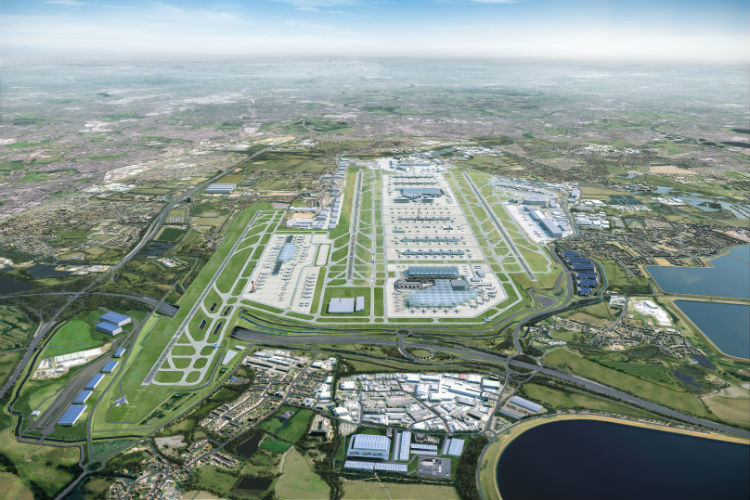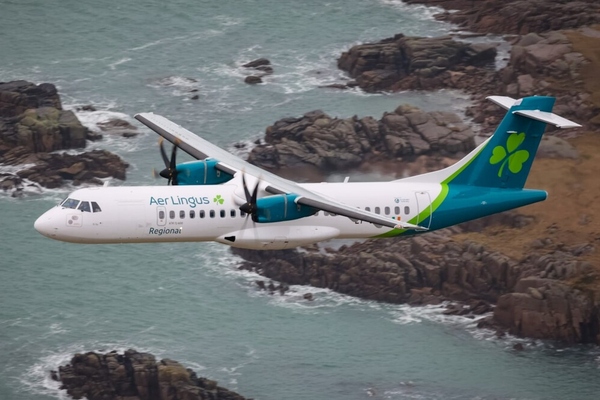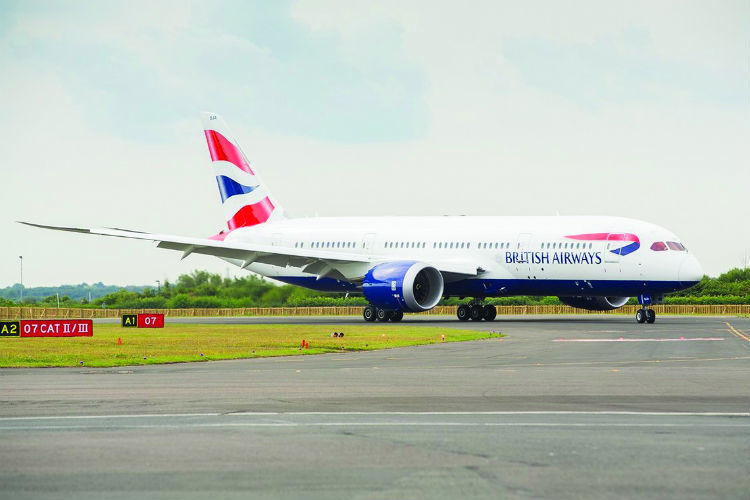Heathrow claims expansion plan will deliver lower airfares
 James Chapple
James ChappleHeathrow says its plans to expand the hub with a third runway will deliver lower airfares for passengers, as well as more domestic and long-haul routes – as many as 100.
The airport has submitted a new initial business plan to the CAA, setting out how it will deliver its expansion plans. This includes whether to pursue a service-oriented investment schedule, or one that focuses instead on speed.
According to Heathrow, the airport remains on course to deliver expansion in-line with its original £14 billion budget "financed entirely by private money at no cost to the taxpayer".
This is despite the CAA last week rejecting Heathrow’s request to extend its pre-expansion cost schedule by nearly £2 billion.
The plan, it says, also fully complies with the Airports National Policy Statement, the agreement signed off by MPs last year permitted Heathrow to pursue expansion via a third runway.
The ANPS favoured expansion at Heathrow over Gatwick, which had submitted a rival bid to expand through a permanent second runway.
Over several months, Heathrow has worked with consumers, business groups, local communities and airlines to establish key priorities for expansion, and has now thrown its new plan open to further consultation through 31 March 2020.
These include lower airfares; greater choice of destinations; better connectivity; renewed sustainability efforts; and maintaining low airport charges.
Heathrow says analysis by Frontier Economics suggests return short-haul fares should go down by £21-£37 and £81-£142 on long-haul.
2020 target
"The lower fares will be delivered over the course of the next decade as Heathrow expands and unlocks competition among airlines for the benefit of passengers," said the airport.
"A lack of available capacity at Heathrow over the past decade has stifled airline growth at the airport. This plan opens up the UK’s hub airport for other carriers to achieve their ambitions."
Virgin Atlantic has been among the most vocal in respect of their ambitions at an expanded Heathrow, calling for an end to British Airways’ dominance at Britain’s busiest airport.
Heathrow has set out two investment proposals covering the next 15 years, which will be whittled down to one over the next six months via engagement with stakeholders and communities around the airport – one will prioritise service and the other speed. It could yet opt for a blend of both.
It hopes to publish a final business plan later in 2020, which will ultimately be signed off by the CAA.
Heathrow chief executive John Holland-Kaye said: “This plan ticks all the boxes. New capacity at Heathrow will help drive down airfares, attract up to 40 new long haul as well as more domestic routes and connect all of Britain to global growth.
"It delivers a sustainable airport at the cost we said without a penny of taxpayer money. Expanding Heathrow will make Britain the best connected country in the world, at the heart of the global economy.”
It comes after Heathrow’s expansion ambitions were last week dealt a blow when it admitted its plans for a third runway could be delayed by up to three years on account of the CAA’s decision not to grant it permission to work to a higher pre-expansion budget for costs.
The CAA said it was concerned that if Heathrow didn’t eventually secure the necessary development permissions, these costs could fall on taxpayers.
Heathrow had hoped to have the third runway built and operational by 2026 at the earliest, but this is now likely to fall between "early 2028 and late 2029".
Sign up for weekday travel news and analysis straight to your inbox

James Chapple
Supplier Directory
Find contacts for 260+ travel suppliers. Type name, company or destination.














